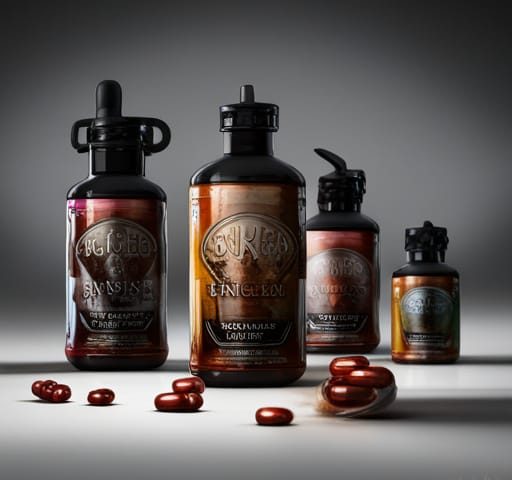What Not to Do When Taking Dietary Supplements
If you are taking dietary supplements, you will want to ensure you do all you can to protect your health. Unfortunately, it is easy to become over-reliant on your dietary supplements, which can lead to various problems. One of the key mistakes you can make is to overdose on a particular dietary supplement or even to take a supplement on an empty stomach. You should also avoid stacking and over-stacking your dietary supplements and consult with your physician before you begin taking any dietary supplements.
Consult with your healthcare provider
The Food and Drug Administration (FDA) recommends that you consult your healthcare provider before starting any dietary supplement. This can help you ensure you are using supplements in the most beneficial way possible.
It would be best to remember that some supplements may interact with prescription medications. For example, a calcium supplement can cause antibiotics to be harder to absorb. Likewise, some blood pressure medicines can interfere with coenzyme Q10.
It’s important to discuss all of your medications with your healthcare provider. Your pharmacist can also help you determine any potential drug interactions. If you are planning a surgery, you should be especially cautious.
Also, inform your healthcare provider if you are pregnant or nursing. Pregnant or breastfeeding women can be more vulnerable to the adverse effects of supplements.
Before you take a new dietary supplement, updating your list of medications is a good idea. It would be best if you were sure to include any over-the-counter products you are currently taking. In addition, you should keep track of the number of times you take your drugs a day.
It’s a good idea to make an appointment with your PCP to discuss your dietary supplement plan. They will be able to advise you on what supplements to take and how often.
When you consult with your healthcare provider, be aware that they are trained to detect and evaluate interactions. That means they can tell you if a supplement is likely to interact with any other medication or if it could harm your health.
As you are deciding which supplements are right for you, it’s a good idea to learn more about what each supplement is made from. Find a trusted company, and look for the ingredients in the product label.
Avoid taking on an empty stomach
Taking vitamins and dietary supplements can lead to gastrointestinal problems. While some supplements you should take on an empty stomach, many others are best taken with food. For instance, fat-soluble vitamins are unsuitable for an empty stomach. A multivitamin and mineral supplement with a meal is a better bet. If you experience nausea or vomiting after taking a multivitamin, try to take it in the morning or at dinner time.
Medications prescribed on an empty stomach should be taken about two hours after a meal. This is because food elements can bind to the chemical structures of medicines, thus helping or hindering their absorption. However, this is not always the case. Certain antibiotics, for example, are better absorbed if taken on an empty stomach.
Taking the appropriate vitamins and supplements can help you achieve and maintain optimal health. These include vitamins, minerals, and herbal supplements. It would be best to drink plenty of water to ensure proper hydration. In addition, you should follow the directions on the bottle for the appropriate dosage.
The most obvious thing to do is to read the label. Ensure you understand the benefits of the different medications and supplements before taking them. Some may not be for you, while others will provide positive results. Be sure to avoid certain foods, beverages, and those that contain calcium, which can impede the absorption of antibiotics.
Take the best vitamins and supplements you can afford. If you have a specific medical condition, consult a doctor or a nutritionist before deciding on a supplement or medication. Remember, some medications can interact with other drugs, so do your homework!
Avoid overdosing
Regarding dietary supplements, it’s essential to know the risks and take precautions. Taking too many vitamins or minerals can harm your health, but you can avoid overdosing by following the appropriate dosage guidelines. In addition, storing your supplements safely is essential.
Vitamin D is an essential nutrient for your overall health. However, you should always follow the recommended dosage for your age. Overdosing on vitamin D can be dangerous and may cause adverse effects on your heart, bones, and other parts of your body. Taking a multivitamin/mineral supplement is essential if you’re an adult and have been told by your doctor that you need it.
Vitamin C is an excellent immunity booster. If you’re taking a Vitamin C supplement, you should take it as directed. If you’re unsure how much you should take, consult a physician. Symptoms of overdosing can range from mild to severe, depending on the type of nutrient and how much you’re taking. An essential multivitamin/mineral supplement is safe for most people.
You should always buy your supplements from a reputable source. This ensures that the product is pure and has not been contaminated by problematic additives. As with any food or beverage, you should never consume a dietary supplement without checking with your healthcare provider first. While overdosing on a single nutrient is rare, certain circumstances could lead to excess. Some of these include taking a large number of supplements or eating foods that have been fortified with vitamin or mineral supplements.
Did you like this content? To read similar content, visit our Shopping Blog at https://topsellers.website/blog/
To shop for Vitamins, Minerals, or any other Supplement, visit our Online Store at https://topsellers.website/shop/

